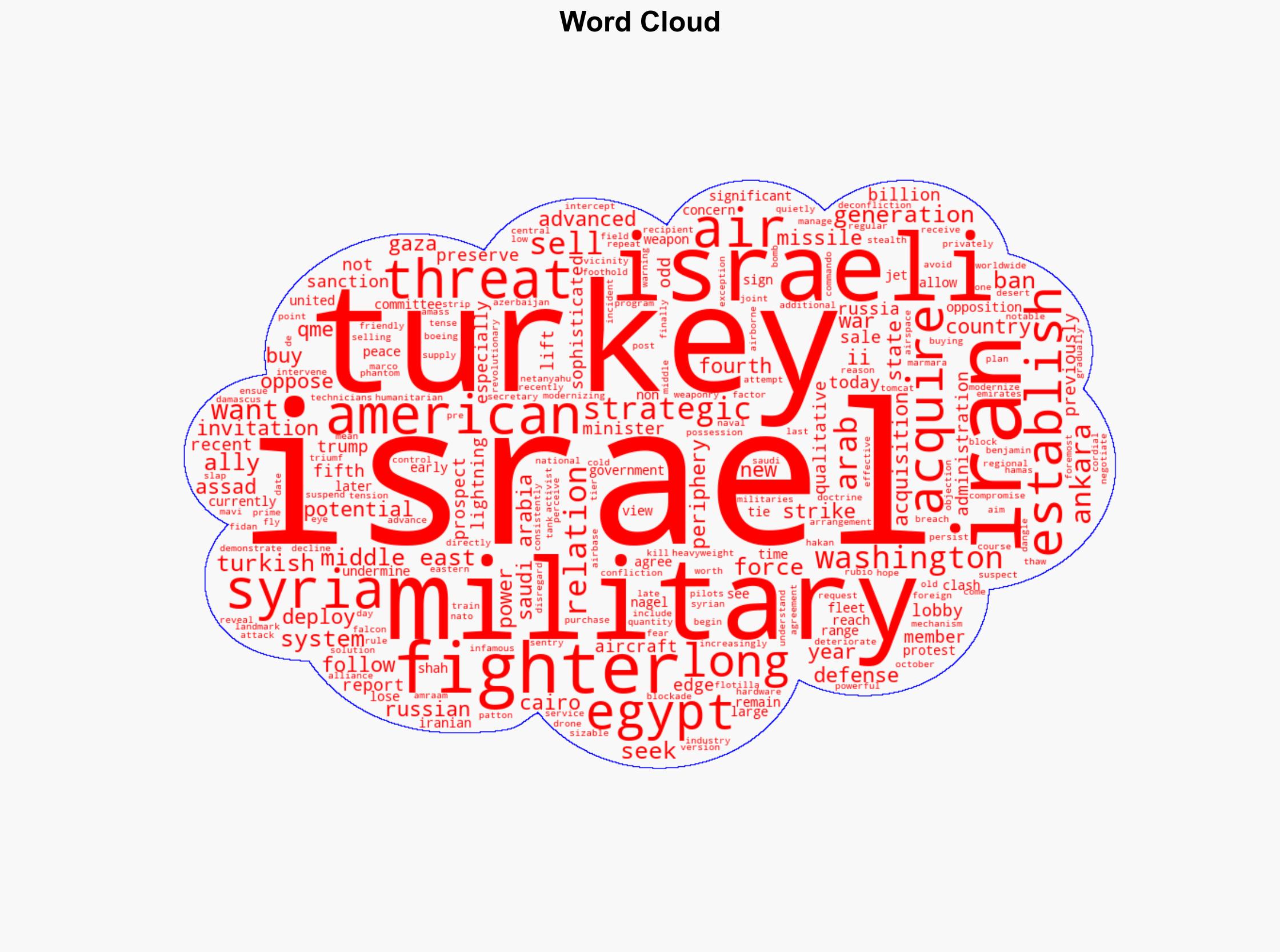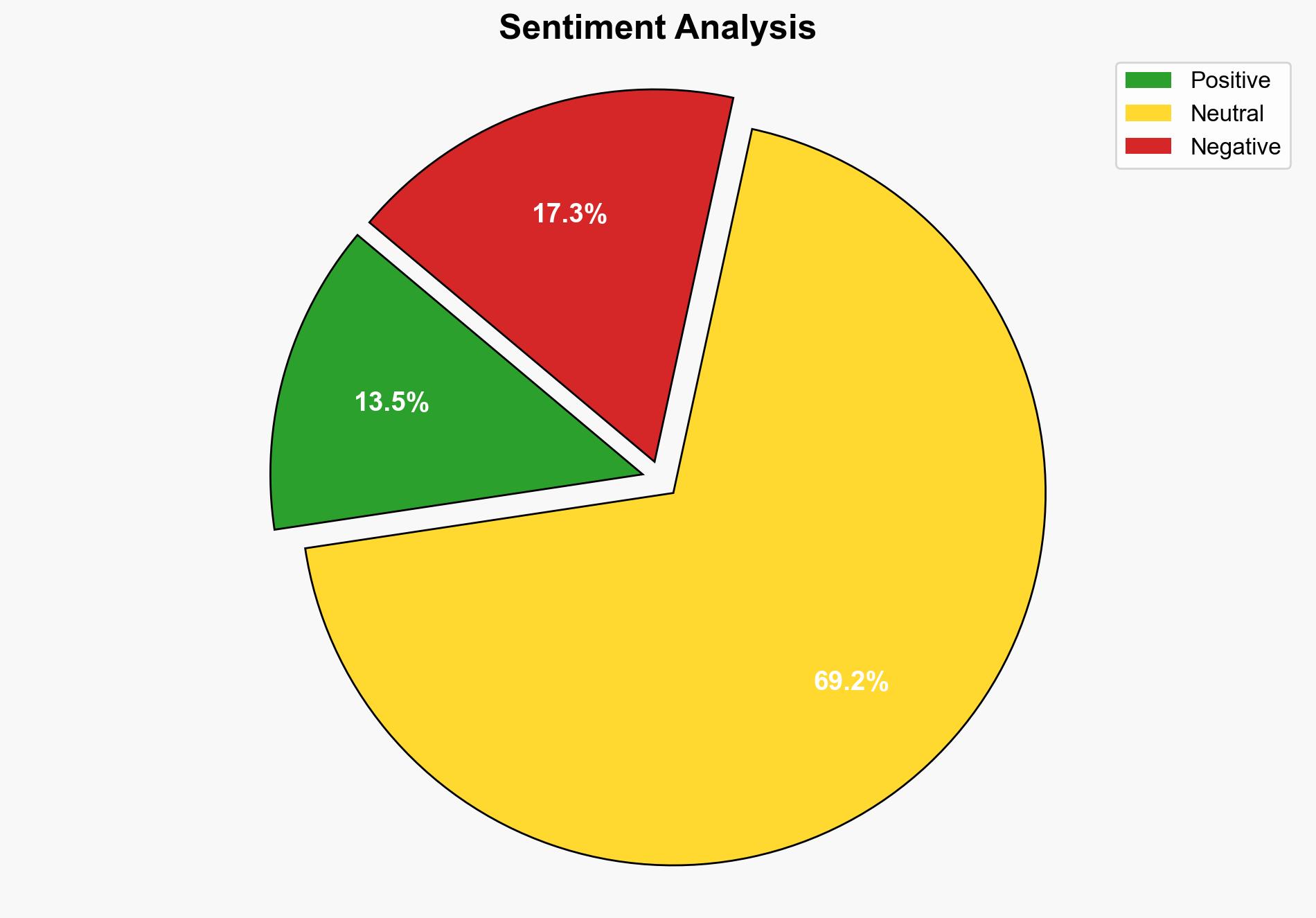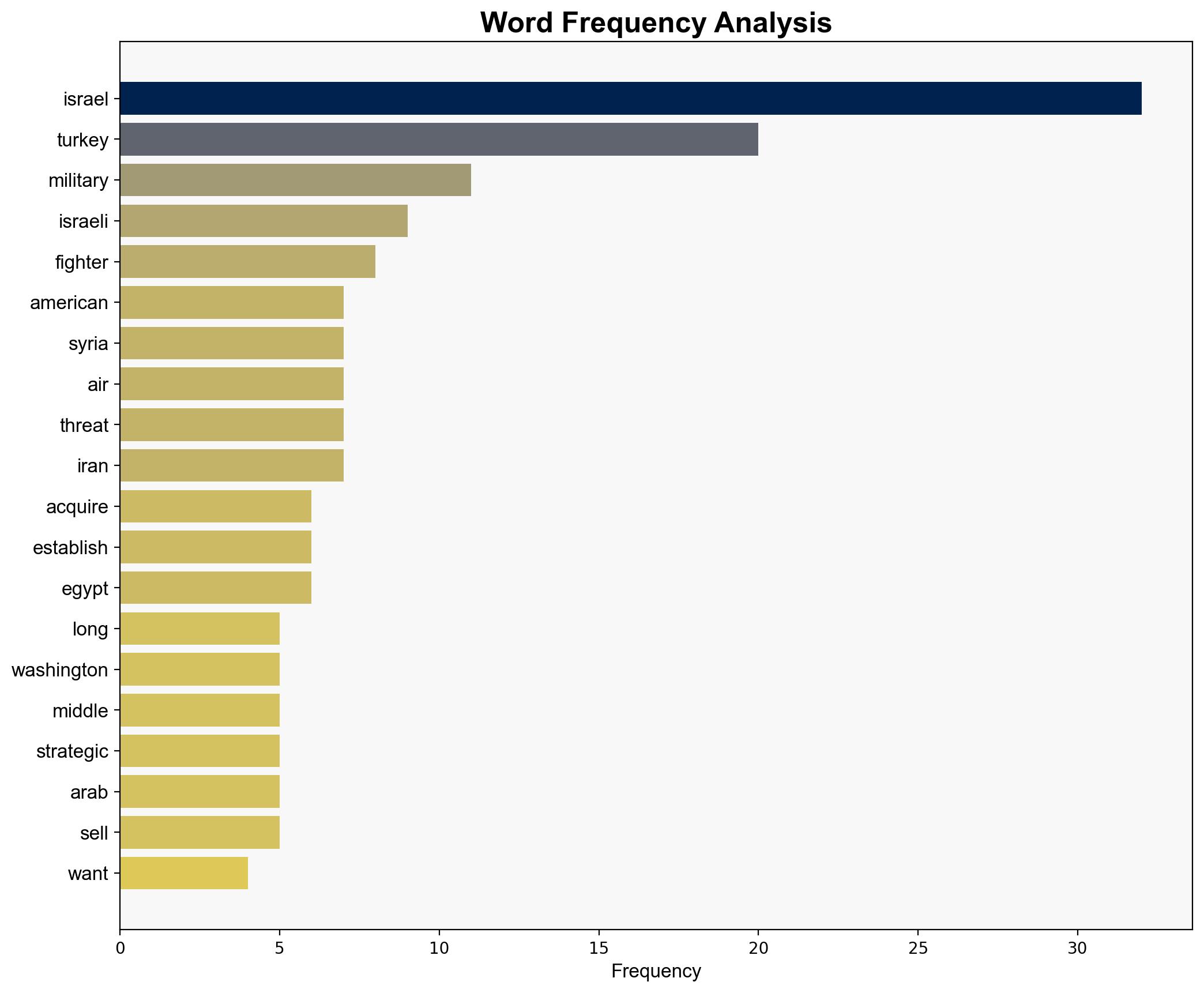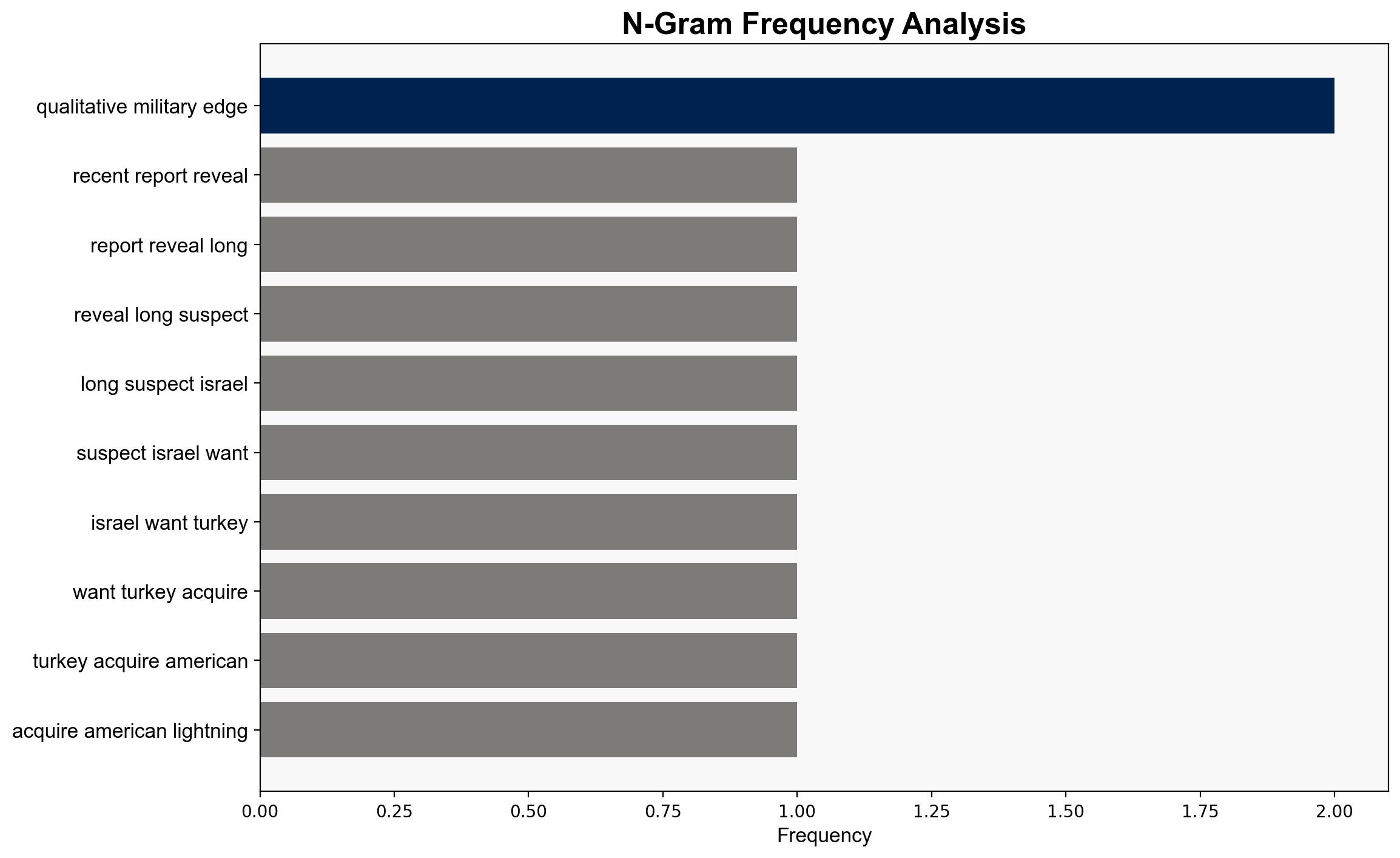QME Why Israel Doesnt Want Turkey Getting The F-35 Stealth Fighter – Forbes
Published on: 2025-04-14
Intelligence Report: QME Why Israel Doesn’t Want Turkey Getting The F-35 Stealth Fighter – Forbes
1. BLUF (Bottom Line Up Front)
Israel is actively opposing Turkey’s acquisition of the F-35 stealth fighter to maintain its qualitative military edge (QME) in the Middle East. The opposition stems from strategic concerns, particularly regarding Turkey’s military activities in Syria and its possession of Russian S-400 missile systems. This situation presents significant geopolitical implications, potentially affecting U.S.-Turkey relations and regional stability.
2. Detailed Analysis
The following structured analytic techniques have been applied for this analysis:
General Analysis
Israel’s lobbying efforts against Turkey’s acquisition of the F-35 are driven by the need to preserve its QME, especially given the historical and ongoing tensions between the two nations. The acquisition of advanced military technology by Turkey could shift the balance of power in the region, particularly in the context of the Syrian conflict where both nations have conflicting interests. Israel’s concerns are compounded by Turkey’s previous acquisition of the S-400 missile system from Russia, which led to its suspension from the Joint Strike Fighter program and subsequent U.S. sanctions.
3. Implications and Strategic Risks
The potential sale of F-35s to Turkey poses several strategic risks:
- National Security: Israel perceives Turkey’s military buildup as a direct threat to its security, particularly if Turkey establishes a military presence in Syria.
- Regional Stability: The acquisition could exacerbate tensions between Israel and Turkey, leading to potential military confrontations in Syria.
- Economic Interests: The U.S. faces a dilemma in balancing its defense sales with maintaining alliances and regional stability, potentially impacting its defense industry and diplomatic relations.
4. Recommendations and Outlook
Recommendations:
- Encourage diplomatic engagement between Israel and Turkey to address mutual security concerns and reduce tensions.
- Consider alternative defense arrangements or compensatory measures to reassure Israel while exploring potential compromises with Turkey.
- Enhance intelligence-sharing mechanisms to monitor developments in Syria and preempt potential conflicts.
Outlook:
In a best-case scenario, diplomatic negotiations lead to a de-escalation of tensions and a mutually acceptable resolution regarding Turkey’s military acquisitions. In a worst-case scenario, failure to address these issues could result in increased military confrontations in Syria and a further deterioration of U.S.-Turkey relations. The most likely outcome involves ongoing negotiations with intermittent tensions, requiring continuous monitoring and diplomatic efforts.
5. Key Individuals and Entities
The report mentions significant individuals and organizations:
- Benjamin Netanyahu
- Marco Rubio
- Hakan Fidan
- Turkey
- Israel
- United States




